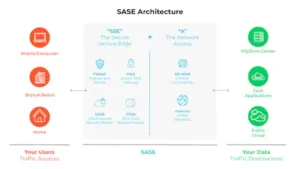Microsoft Dynamics 365 Implementation Cost: What to Expect
Implementing Microsoft Dynamics 365 can be a game-changer for businesses looking to streamline operations, improve customer relationships, and boost overall efficiency. However, understanding the total cost of implementation is crucial before diving in. In this article, we’ll break down the key factors that influence the cost of Microsoft Dynamics 365 implementation.
1. Subscription Licenses
The first and most obvious cost component is the subscription licenses. Microsoft Dynamics 365 operates on a subscription model, which means you’ll pay based on the number of users and the specific modules you need. Prices vary depending on the functionality required, such as Sales, Customer Service, Finance, Operations, and more.
- Example pricing: Licenses typically range from $50 to $200 per user per month, depending on the plan and features selected.
2. Customization and Configuration
While Dynamics 365 offers a range of out-of-the-box features, most businesses will require some level of customization to meet their specific needs. This could involve modifying workflows, integrating with third-party systems, or creating custom reports.
- Cost considerations: Customization can range from $5,000 to $50,000 or more, depending on the complexity and scope of the changes.
3. Data Migration
Data migration is another essential part of the implementation process. It involves transferring data from legacy systems to Dynamics 365. The complexity of your data and the number of systems you’re migrating from will significantly impact the cost.
- Average cost: Data migration can cost anywhere from $10,000 to $100,000, depending on the size of your data and the migration tools required.
4. Training and Support
Proper training is necessary for your team to effectively use Dynamics 365. This often involves both initial training during the rollout phase and ongoing support to ensure continued success.
- Training costs: Training can cost between $2,000 to $20,000 based on the number of users and the depth of training required.
5. Consulting Fees
Hiring a Microsoft Dynamics 365 implementation partner or consultant is common for businesses that need expert guidance. Consultants help with planning, configuration, and ensuring a smooth transition. Their fees can vary based on experience and project size.
- Consulting costs: Consultants may charge anywhere from $150 to $250 per hour or offer fixed pricing for full implementation, which can range from $20,000 to $100,000 or more.
6. Ongoing Maintenance and Updates
Once Dynamics 365 is up and running, there will be ongoing costs for maintenance, updates, and system improvements. Microsoft frequently releases updates, and businesses may need to upgrade or tweak configurations to keep everything running smoothly.
- Estimated cost: Ongoing maintenance can cost 15-20% of the initial implementation cost annually.
Conclusion
The cost of implementing Microsoft Dynamics 365 varies widely based on your business’s needs, the level of customization required, and the size of your organization. It’s essential to consider all these factors and plan for both initial and ongoing costs to ensure that your implementation is successful and delivers long-term value.
By budgeting for licensing, customization, data migration, training, consulting, and maintenance, businesses can get a clearer picture of the total cost of ownership and avoid any unexpected expenses










Post Comment